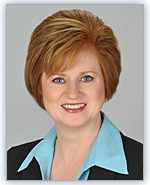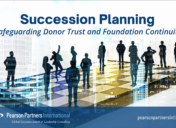7 Executive Interview Types

Companies use a variety of interview types, and in the process of hiring an executive, they may use any or all. Understanding the various types of interviews will help you know what to expect so you can prepare to present your best self.
One-to-One
The most common interview format is one interviewer interviewing one candidate. This is sometimes the first of several interviews. Second and third interviews will usually have a number of interviewers.
Team / Board Interview With Two or More People
While it is important to have good eye contact with the person who asks you the question, also look at the other persons present periodically in order to include them in your answer. Try to remember each individual’s name and use his or her name at some point during the interview.
General (Group) Interview
This approach is intended to provide applicants with a large amount of information about the organization and the role. The format is used in order to save time and ensure everyone understands the basic facts. This process is usually followed by an individual interview.
Competitive Group Interview
Many candidates are interviewed at the same time, by one or more interviewers. This type of interview is sometimes utilized when a position being applied for involves team work. In this case, the interviewers want to see how you interact in a group setting, and a competitive group interview is used most often to determine who rises as a leader within the group and/or when they have large numbers of people interviewing for several similar roles within the company. It is important to thoughtfully and intelligently contribute, but not monopolize the conversation.
Structured Interview
The goal of this approach is to eliminate bias and assist the employer in making an objective decision. All candidates are asked the same questions for the employer’s ease in evaluating applicants. If there is important information that you have not conveyed by the end of the interview, when asked if you have any questions or anything to add, present your additional qualifications. Usually the interviewer will make written notes of your answers.
Semi-structured Interview
In a semi-structured interview you have a better opportunity to convey information, as there are fewer pre-determined questions. However, you need to be well prepared and know the points you want to make. You will also be expected to participate in carrying the conversation.
Telephone Interview
Because of the high cost of paying travel expenses for candidates, some first interviews are conducted by telephone. If the call surprises you and you are not ready for an interview, ask the person to call back in 15 minutes, or arrange another mutually convenient time. This will give you time to refresh your memory on the organization and what points you want to make. All advice about interview skills still applies, except dressing for the occasion. However, you may find that dressing professionally helps you perform better. Keep your resume and your list of questions in front of you. Have a pen and paper available to note any comments or questions you may have during the interview. It is important to pay attention to the voice tone and tempo. Be sure to change your tone and tempo to demonstrate your interest.
Related Posts
- ← Tips from the Leadership Coach: Maximize Your Employee Referral Program
- Executive Interview Tips →















